
Ramadhan is the (month) in which was sent down the Qur’an, as a guide to mankind, also clear (Signs) for guidance and judgment (Between right and wrong). So every one of you who is present (at his home) during that month should spend it in fasting, but if any one is ill, or on a journey, the prescribed period (Should be made up) by days later. Allah intends every facility for you; He does not want to put to difficulties. (He wants you) to complete the prescribed period, and to glorify Him in that He has guided you; and perchance ye shall be grateful.A relevant hadith:
Surah Al-Baqarah, verse 185, translated by Hafiz Abdullah Yusuf Ali
Anas (may Allah be pleased with him) said: "The Messenger of Allah (peace and blessings be upon him) came to Al-Madinah, the people of Madinah used to have two festivals. On those two days they had carnivals and festivity. The Prophet Muhammad (peace and blessings be upon him) asked the Ansar (the Muslims of Madinah) about it. They replied that before Islam they used to have carnivals on those two joyous days. The Prophet Muhammad (peace and blessings be upon him) told them: "Instead of those two days, Allah has appointed two other days which are better, the days of `Eid Al-Fitr and `Eid Al-Adha."From Wikipedia:
(from "riwayat Ahmad, Abu Daud dan al-Nasa’ie")
The Takbir is recited after having confirmation that the moon of Shawwal is sighted on the eve of the last day of Ramadan. It continues until the start of the Eid prayer. Before the Eid prayer begins, every Muslim who is able must pay Zakat al-fitr,[3] an alms for the month of Ramadan. This equates to about 2 kilograms (4.4 lb) of a basic foodstuff (wheat, barley, dates, raisins, etc.), or its cash equivalent, and is typically collected at the mosque. This is distributed to needy local Muslims prior to the start of the Eid prayer. It can be given at any time during the month of Ramadan and is often given early, so the recipient can use it for Eid purchases. This is distinct from Zakat based on wealth, which must be paid to a worthy charity. The Takbir consists of:How is Aidil Fitri celebrated in Malaysia? From Wikipedia:
Allaahu akbar, Allaahu akbar, Allaahu akbar الله أكبر الله أكبر الله أكبر
laa ilaaha illAllaah لا إله إلا الله
Allaahu akbar, Allaahu akbar الله أكبر الله أكبر
wa li-illaahil-hamd ولله الحمد
God is the Greatest, God is the Greatest, God is the Greatest,
There is no deity but God
God is the Greatest, God is the Greatest
and to God goes all praise
AndUsually on the eve of the celebrations, family members, especially mothers and housewives, will be busy preparing food, cakes, sweets, biscuits and various delicacies to be served on the day of Hari Raya. Delicacies such as ketupat or rice cake and a meat cuisine called rendang are among the most famous cuisines that are served during this day. Other family members will help in other chores such as decorating and cleaning up the house.
Days before Hari Raya, house compounds, particularly those in the countryside will be lit up with oil lamps known as pelita or panjut. This display of oil lamps will reach its height on the 27th night of Ramadan, called the Tujuh Likur night. 'Likur' literally meaning a figure between 20 and 30, hence 'tujuh likur' means twenty seven. Originally during the early days of the arrival of Islam among the Malays, the purpose of lighting the oil lamps was to attract spirit of passed relatives and angels to descend to people's homes during the night of Lailatulqadar. However after ages has passed, such misconception is regarded counterfactual as much understanding of Islam were obtained. Nowadays the oil lamps are lit solely for decorative purposes.
It is customary for Malays to wear traditional Malay costumes. The dress for men is called baju Melayu while the women's are known as baju kurung and baju kebaya. Traditional textiles such as songket and batik are worn favourably during this day.
Muslims will attend Eid prayer in the morning and consecrate together harmoniously while taking the chance to meet and greet each other. Once the prayer is done, it is also common for Muslims in Malaysia to visit the grave of their loved ones. During this visit, they will clean the grave, perform the recital of the Yasin — a chapter (surah) from the Qur'an and also the tahlil or prayers for the deceased. All these are done in hope that their loved ones are blessed by God and they are spared from the punishment in the grave.
The rest of the day is spent visiting relatives or serving visitors. Hari Raya is a very joyous day for children for this is the day where adults are extra generous. Children will be given token sums of money, also known as duit raya from their parents and elders.
During the night, there are often celebrations with sparklers and firecrackers, albeit restrictions on playing firecrackers enforced by the authorities. Most firecracker stocks are purchased and smuggled illegally from black markets. Safety issues, especially among children are raised and alarming cases relating to injuries caused by playing firecrackers are often reported, which initially led to the banning of playing firecrackers. Despite of the enforcement of banning firecrackers, more Malay children turn to home-made firecrackers such as meriam buluh (bamboo cannon) as alternatives to commercial fireworks. Usually the lighting of firecrackers begins a few days before the end of Ramadan, and continues for about a week afterwards.
The main greeting used by Muslims in Malaysia and Singapore is "Selamat Hari Raya" which means "Happy Eid" in Malay. Another greeting is "maaf zahir dan batin" which translates loosely to "I seek forgiveness (from you) physically and spiritually", for Hari Raya is a time to reconcile and renew relationships with others.Selamat Hari Raya Aidil Fitri to all, maaf zahir dan batin!
Sincerely,
Malaysian Heart
Please visit these links to learn more:
Takbir Aidil Fitri in Masjidil Haram
Bagaimana kita Menyambut Aidil Fitri?
http://www.islamicity.com/ramadan/Eid_default.shtml
AMALAN SUNNAH SEMPENA AIDILFITRI




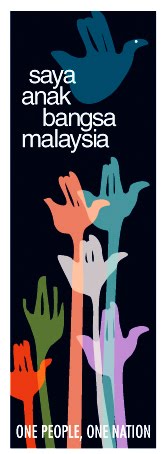

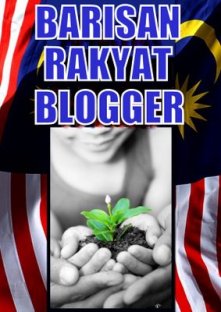
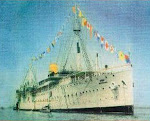
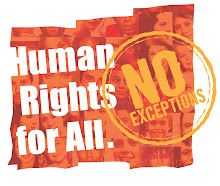





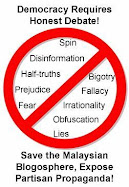



No comments:
Post a Comment
How to Paste Text into Comment Boxes
Google seems to have disabled pasting text (including ctrl-v) into blogger comments boxes in Firefox. The good news is that:
1. You can still copy paste using Internet Explorer (I successfully tried it with IE7)
2. With Firefox, you can still "Drag and Drop" text into the comment form. I have successfully dragged and dropped text from MS Word, websites (HTML) and from ScribeFire (plain text and HTML). Just do the following:
a) reduce the size of the window you want to take the text from, and place it near the comment box
b) Highlight the required text with cursor
c) Click on the highlighted text and drag it over to the comment box and drop it there.
Happy commenting!